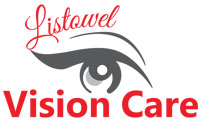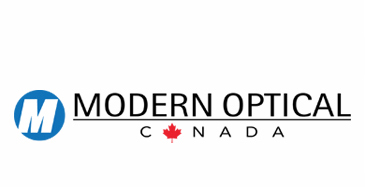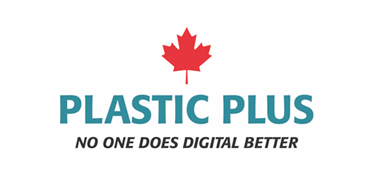EYE SEE...EYE LEARN
Helping Your Child To Succeed In SchoolEye See…Eye Learn®
The Eye See…Eye Learn® program begins July 1, 2023 to June 30, 2024. All children born in 2018 or 2019 are eligible to receive complimentary glasses. Only 16% of children in Ontario have their eyes examined prior to kindergarten. Be sure that your child is one of them! If your child needs eyeglasses, a pair will be provided at no charge (in partnership with Modern Optical Canada and Plastic Plus). We are proud to participate and to provide our community’s young students with the eye care they need to succeed in school.
In Ontario, yearly eye exams for children are covered by OHIP until they turn 20 years old.
How to Participate in Eye See…Eye Learn®
The Eye See…Eye Learn® program: Children born 2020 and starting JK in 2024 qualify for a pair of complimentary glasses. Book an appointment between July 1, 2023, and June 30, 2024.
If required, Eye See…Eye Learn® will provide one pair of glasses courtesy of our participating optometrists and corporate partners Plastic Plus and Modern Optical Canada. The frames are fashionable and are made with high quality and impact resistant polycarbonate lenses. The estimated value of the glasses is over $250.
Does my child need an eye exam?
Each year, thousands of children start school without ever having an eye exam. Parent often believe that their child will let them know that they cannot see well, but children are rarely able to tell that they have poor vision because they have nothing to compare it to. That’s why we recommend that all children have their first eye exam at 6 months old, again at 2-3 years old, and every year after that.
In Ontario, yearly eye exams for children are covered by OHIP until they turn 20 years old.
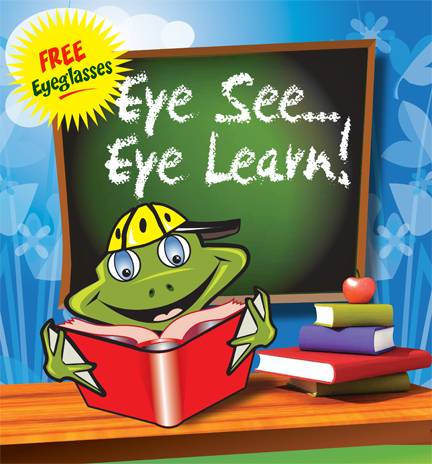
Why are eye exams for children important?
Comprehensive eye exams with an optometrist are the only way to tell if your child’s eye are developing properly. Many eye health problems can be treated if they are caught early. For example, a lazy eye can be completely corrected if it is detected and treated early.
Eye exams also make sure your child is able to learn. Children who cannot see the board, focus on a picture or follow words in a book may struggle to achieve their full learning potential. Vision problems can also impact their hand-eye coordination for physical activities and even impact their social development. Almost three-quarters of Ontario’s parents are unaware that vision problems can cause speech difficulties, nearly two-thirds are unaware that they can lead to developmental delays and half of parents do not realize that a vision problem may be the cause of short attention spans in children.
Undetected and untreated vision problems often cause reading difficulties, and can cause the same signs and symptoms that are commonly attributed to issues such as ADHD, dyslexia and speech problems.
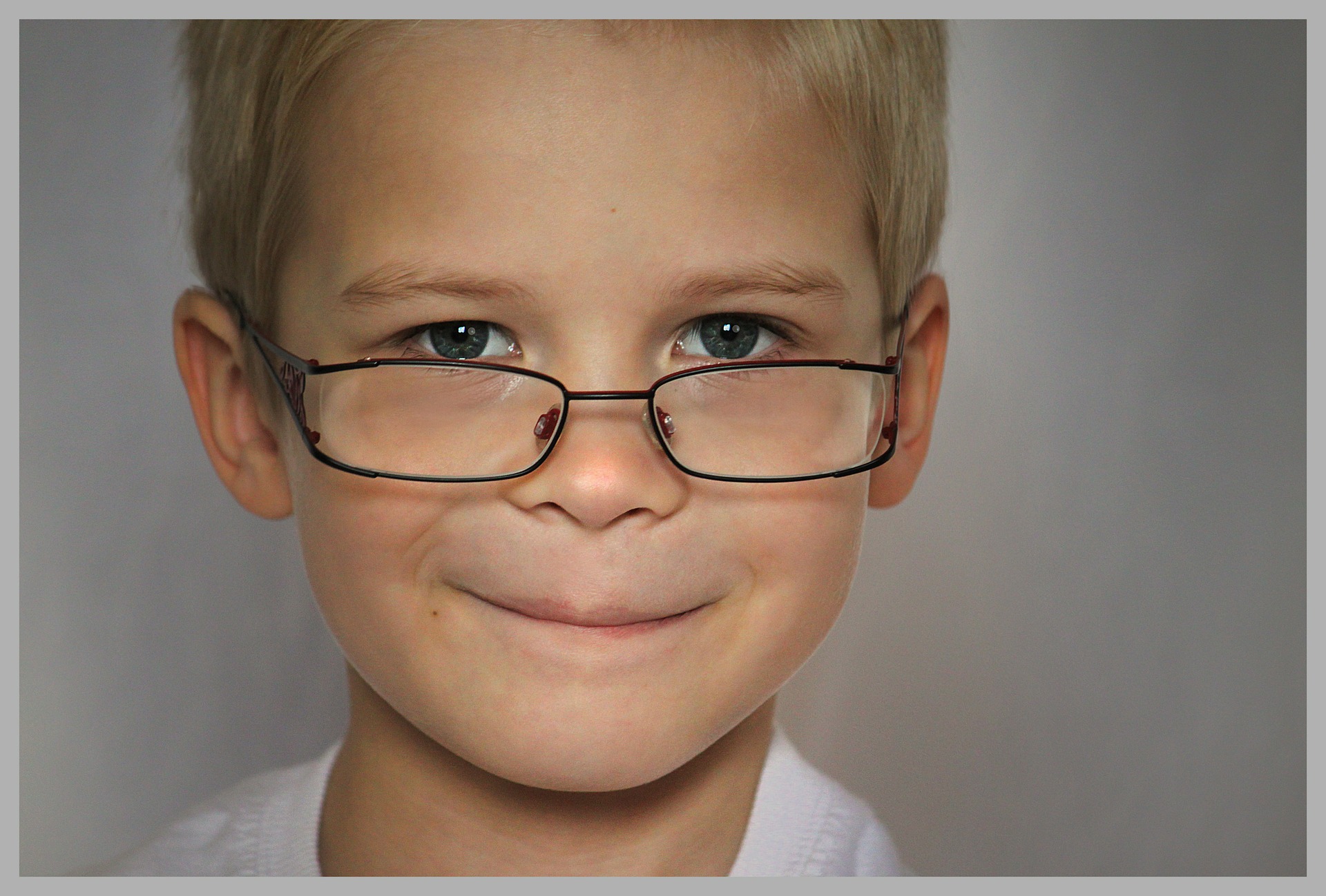
Comprehensive eye exams vs. vision screening
Vision screenings are not a substitute for a comprehensive eye health exam. A vision screening does not assess the entire visual system, including the health of a child’s eyes, so many vision problems can be missed.
Many children participate in vision screening or sight test programs at school, which some parents confuse with a comprehensive eye exam. These tests are limited and cannot be used to diagnose a vision or eye health problem. Studies have shown that vision screening tests have high error rates. Forty-three percent of children with an eye health problem are able to pass a vision screening.
Eye exams performed by optometrists look at the structural development of the eye and identify any underlying health conditions. Retinoblastoma is the most common type of eye cancer in children, accounting for approximately three percent of all cancers that occur in children younger than 15 years of age. The disease may show signs as early as six to nine months old. Optometrists also play a role in monitoring children with diabetes, one of the most common chronic diseases among children and youth in Canada. Optometrists look for telltale signs of diabetic retinopathy, which damages the small blood vessels in the retina.
Source:
“Eye See…Eye Learn, Ontario Association of Optometrist, Retrieved 13 June 2019 <https://www.optom.on.ca/OAO/ESEL/OAO/ESEL/Eye_See…Eye_Learn.aspx>.
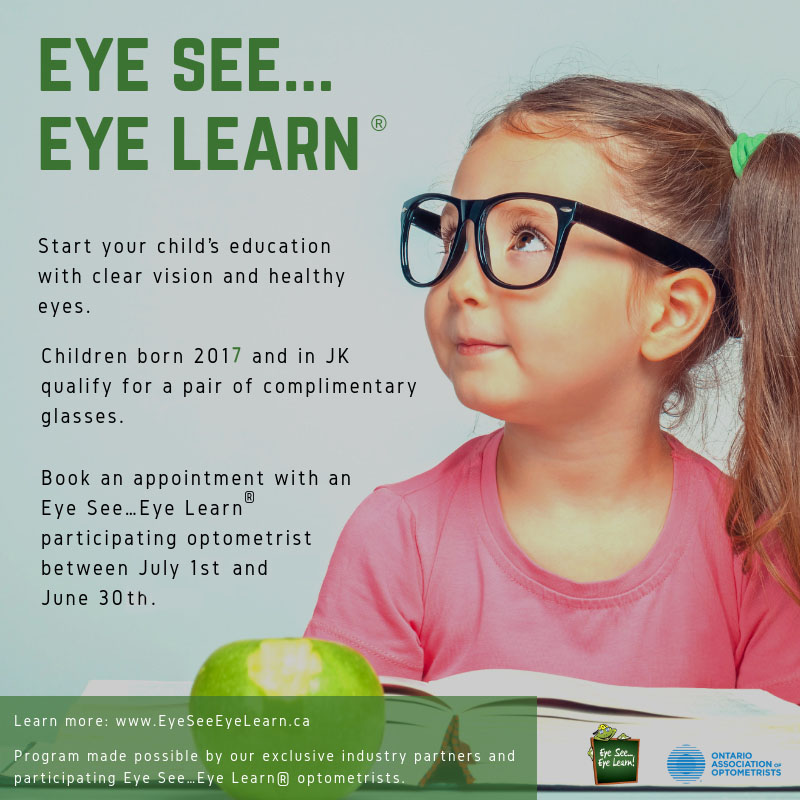
Does my child have a vision problem?
There is only one way to tell if your child has good eye health and vision: by having a yearly comprehensive eye exam. Between eye exams, there are signs and symptoms that you can look for. If you notice any of these symptoms, book an eye exam right away to make sure your child’s eye health and vision are taken care of.
Signs and symptoms:
Does your child have an unusual eye appearance?
- One eye that looks turned in or out?
- Bumps, styes, redness, swelling or crusting of eyelids?
- Drooping eyelid?
- Haziness or whitish appearance inside the pupil?
- Frequently watery eyes?
Does your child behave in a way that could suggest a vision problem?
- Does not watch or follow an object?
- Touches things to help recognize them?
- Does not make eye contact?
- Closes or covers one eye?
- Squints or frowns when looking far or near?
- Rubs or touches the eyes a lot?
- Blinks more than usual?
- Reacts strongly to light?
- Turns or tilts head when viewing objects?
- Holds objects very close to face?
- Dislikes near tasks?
- Loses interest quickly or becomes irritable with visual activities?
- Has poor depth perception or trouble seeing 3D?
- Trips, falls or bumps into things often?
- Is uncoordinated for play activities and sports?
Does your child have difficulties with learning?
- Has poor posture when reading/writing?
- Has poor handwriting?
- Moves head, loses place, skips lines when reading?
- Uses more effort than normal to complete school work?
- Works hard but is not achieving the expected level at school?
Is your child at risk for vision problems?
- Does a family member have a turned or lazy or blind eye?
- Does a family member have glasses with high power?
- Has any family member had early childhood cataracts or glaucoma?
- Were there complications with the pregnancy or delivery?
- Was your child premature at birth?
- Does your child have a hearing loss?
- Does your child have a health condition that can affect eyes, such as:
- Juvenile arthritis
- Cerebral Palsy
- Type 1 Diabetes
- Down syndrome
- Autism
- Attention deficit disorder (ADHD)
- Developmental delay
